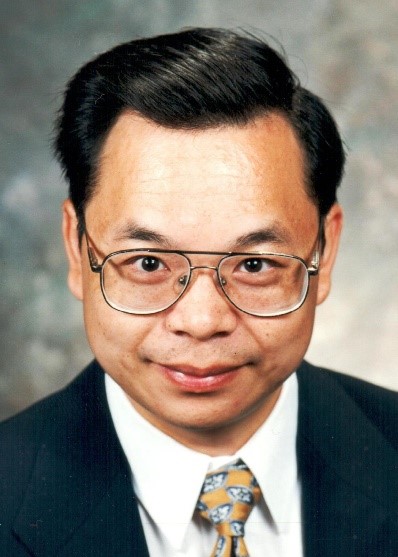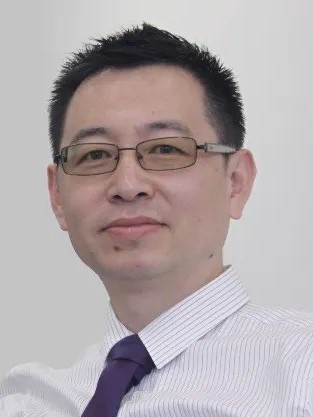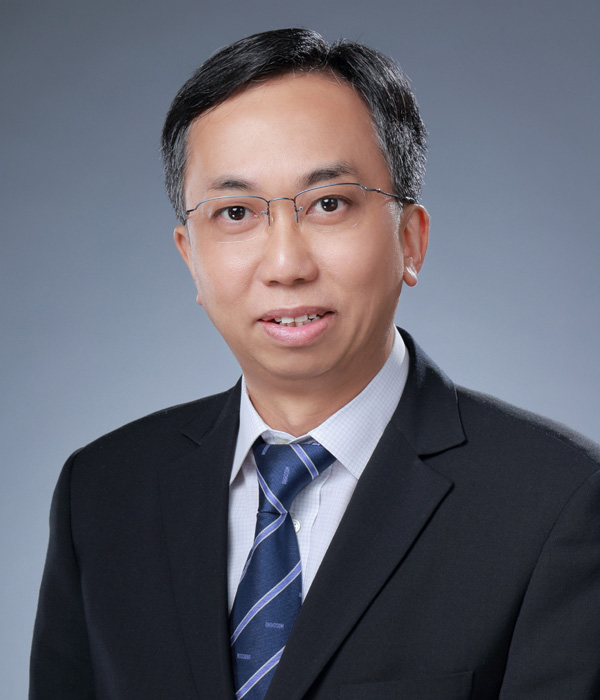
Speaker
| KeynoteSpeakers |
Professor Yanguo Jing Leeds Trinity University, UK Professor Dr Yanguo Jing is the Dean of the Faculty of Business, Computer Science and Digital Industries, Leeds Trinity University. He is a Professor of Artificial Intelligence. He has a PhD (Heriot-Watt University, UK), a MSc, a 1st class BSc (Hons) in Computer Science and a PGCert in Learning and Teaching in Higher Education. He has over 20 years’ teaching, research and enterprise experience in the UK and in China. Prof. Jing is a Fellow of the British Computer Society, a Charter IT professional and a Principal Fellow of the Higher Education Academy in the UK. Prof. Jing’s prime research interests are AI and big data. His recent research work focuses on the use of machine-learning methods to capture interaction and user behaviour patterns that can be used to develop intelligent applications. This research has been applied in applications such as business analytics, sports analytics, and user behaviour pattern recognition in social networks and extra-care/ Assisted Living settings. He participated in several research, KTP and consultancy projects with sponsors and clients such as Cadent Gas, Pfizer, Welsh Government, KPIT, UK’s Comic Relief charity and JISC in the UK. Prof. Jing has been instrumental in bringing over £30M funding in innovation and executive education. Title: The use of machine learning in sports science projects
Abstract: Machine learning have been widely used to efficiently identify hidden patterns, correlations, and valuable insights from large datasets. This talk provides in-depth coverage of three separate but related projects using machine learning in sports sciences. They are: 1. the use of machine learning to identify swim metrics using wearable devices. 2. the use of machine learning to identify and predict energy consumption among young football players. 3. the use machine learning to determine the key contributors to football technical skill in grassroots youth football players and how machine learning models can be used to predict technical skill among young footballers. The speakers will also provide further thoughts in terms of ethical consideration and future works of these studies. |
|
Professor Simon CHEUNG King-sing IET fellow, IMA fellow, BCS fellow, HKIE fellow, HKCS fellow, Hong Kong Metropolitan University, China Dr. Cheung is currently the Director of IT at the Hong Kong Metropolitan University. He received his BSc and PhD in Computer Science from the City University of Hong Kong, and was admitted as IET fellow, IMA fellow, BCS fellow, HKIE fellow, HKCS fellow. He is active in research, with near 200 publications in the form of books, book chapters, journal articles and conference papers in two distinct areas, namely, innovation and technology in education, and software and system engineering. He won the Outstanding Research Publication Award from the Open University of Hong Kong in 2016, the 1st class Achievement in Computer and IT from Shenzhen Science and Technology Association in 2016, the 1st class Outstanding CIO Award from the Hong Kong IT Joint Council in 2015, and an Honoree for IT Excellence from the CIO Asia in 2015. He has been listed in the Who’s Who in Science and Engineering since 2007. Title:Cloud Deployment of Enterprise Systems on 3-Tier Architecture for Cost-Performance Balance Abstract: It is widely accepted that cloud deployment of enterprise systems can achieve an optimal cost-performance balance. This presentation reports a successful case of hybrid cloud deployment of an enterprise system which used to handle a large volume of concurrent accesses and transactions at seasonal peaks. The enterprise system adopts a typical 3-tier architecture, comprising a web tier, an application tier and a back-end database tier. The web tier and application tier are deployed on hybrid cloud with the back-end databases resided on premises. The objective is to achieve an optimal cost-performance balance while attaining an acceptable level of resilience and security control. In this presentation, the design and implementation is described, and the challenges are discussed. Technical evaluation is conducted to show the cost and performance in different environmental settings. It is also discussed how an optimal cost-performance balance can be derived effectively. |
|
Professor Simon X. Yang University of Guelph, Canada Prof. Simon X. Yang received the B.Sc. degree in engineering physics from Beijing University, China in 1987, the first of two M.Sc. degrees in biophysics from Chinese Academy of Sciences, Beijing, China in 1990, the second M.Sc. degree in electrical engineering from the University of Houston, USA in 1996, and the Ph.D. degree in electrical and computer engineering from the University of Alberta, Edmonton, Canada in 1999. Prof. Yang joined the School of Engineering at the University of Guelph, Canada in 1999. Currently he is a Professor and the Head of the Advanced Robotics and Intelligent Systems (ARIS) Laboratory at the University of Guelph in Canada.
Prof. Yang has diversified research expertise. His research interests include robotics, artificial intelligence, sensors and multi-sensor fusion, wireless sensor networks, intelligent control, machine learning, fuzzy systems, intelligent communication and transportation, and computational neuroscience. His significant research contributions can be reflected by his original and innovative work in biologically inspired intelligence with applications to real-time motion planning, tracking and control of various robotic systems, and various other engineering and biomedical systems. He has published over 600 referred papers, including over 330 journal papers. Prof. Yang he has been very active in various professional activities. He serves as the Editor-in-Chief of Intelligence & Robotics, and International Journal of Robotics and Automation; and an Associate Editor of IEEE Transactions on Cybernetics, IEEE Transactions of Artificial Intelligence, and several other journals. He has involved in the organization of many international conferences. Title:Intelligent Sensing and Multi-Sensor Fusion for Signal Processing of Various Engineering Systems Abstract::Real-time sensing and multi-sensor fusion are fundamentally important issues for signal processing, monitoring and control of various engineering systems. Intelligent real-time data acquisition, effective multi-sensor fusion, and efficient signal processing would achieve reliable and accurate information for the engineering systems, and result in high performance and efficient operation of the engineering systems. In this talk, I will start with a very brief introduction of the various intelligent approaches. Then I will present our recent research on several innovative applications of advanced intelligent systems to agricultural, biomedical, robotic and other engineering systems, such as an electronic nose system for real-time livestock odor monitoring and control, which is based on novel e-noses and wireless sensor networks; a real-time intelligent system for ginseng drying, which is based on a computer vision system and an embedded intelligent controller; a real-time intelligent system for flue-curing barns, which is based on the image features of tobacco leaves from cameras, smells from an electronic-nose system, and a neuro-fuzzy control system; and a real-time intelligent monitoring and control system for meat drying process with efficient energy consumption, where an improved psychrometer is developed for accuracy relative humidity measurement and a neuro-fuzzy system is developed for decoupled temperature and humidity control. Finally, I will talk about intelligent sensing and signal processing of intelligent harvesting robotic systems for agricultural products, and intelligent navigation of behavior-based mobile robots in unstructured field environments. |  |
Assoc. Prof. Pavel Loskot Zhejiang University-University of Illinois at Urbana-Champaign Institute (ZJUI), China Pavel Loskot joined the ZJU-UIUC Institute in January 2021 as the Associate Professor after being nearly 14 years with Swansea University in the UK. He received his PhD degree in Wireless Communications from the University of Alberta in Canada, and the MSc and BSc degrees in Radioelectronics and Biomedical Electronics, respectively, from the Czech Technical University of Prague in the Czech Republic. He is the Senior Member of the IEEE, Fellow of the Higher Education Academy in the UK, and the Recognized Research Supervisor of the UK Council for Graduate Education. His current research interest focuses on problems involving statistical signal processing and importing methods from Telecommunication Engineering and Computer Science to other disciplines in order to improve the efficiency and the information power of system modeling and analysis. title:10 Lessons I Learned in Telecommunications Engineering
abstract:After working in telecommunications for nearly 20 years, here are the 10 lessons that appear to have broader and longer lasting validity. 1. Diversity is the only way to reliability. 2. Complex propagation and interference can be dealt with, it is the additive noise that is an ultimate killer. 3. Complex problems and systems should be broken into pieces before bringing them back together. 4. All of a sudden, everyone became a computer scientist overnight. 5. There are fundamental limits to everything. 6. Practical solutions will eventually meet these fundamental limits. 7. Scaling up inevitably makes things distributed. 8. All transport networks have the same issues. 9. Best solutions are useless if they are not robust. 10. Complexity kills robustness. |  |

